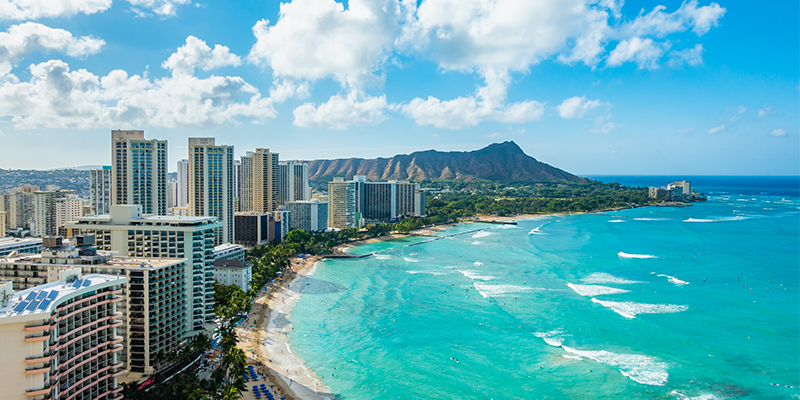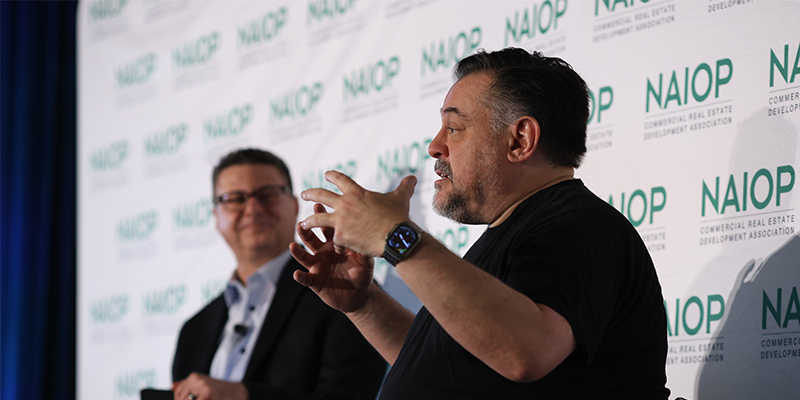The Hawaii Senate is considering legislation that places a moratorium on commercial evictions. The legislation is similar to a bill, SB 939, that was introduced in California last year. Hawaii’s SB 563 would prohibit landlords from legal proceedings to evict or collect unpaid rent from commercial tenants that have been adversely impacted by the COVID-19 pandemic. It would provide these tenants with new rights that allow them to defer rent payments until 90 days after the state’s emergency proclamation is lifted. This would lead to an economic imbalance and mortgage crisis in the islands.
After providing the property owner with written notice of the pandemic’s effect on their business, SB 563 provides “impacted commercial tenants” with 12 months after the end of the emergency proclamation to make up for any unpaid rent. The property owner is still required to make mortgage and debt service payments despite having to forgo any rental income during this period, but is provided no relief under this legislation. This would place critical financial pressure on the commercial property owner that could lead to foreclosure and bankruptcy.
The legislation defines “impacted commercial tenants” as Hawaiian businesses that have a commercial lease, operate primarily in the state and meet one of the following:
- Experienced at least a 20% decline in average monthly revenue over the two most recent months when compared to the two months prior to the emergency proclamation or for the same two months in 2019.
- Prevented or delayed from opening because of the emergency proclamation.
- Suffered a decline of at least 15% in capacity of the rented space due to COVID’s public health and safety guidelines.
Impacted commercial tenants are also proved a new right to renegotiate existing leases after providing written notice to the landlord. If the landlord and tenant are unable to agree to a mutually acceptable lease, the tenant may terminate the existing lease with no further liability, costs or other assurances associated with the leased property. The legislation would require the former tenant to pay three months of rent within one year of vacating the property or the actual unpaid rent, whichever is less, and all unpaid rent prior to the economic shutdown caused by the pandemic. The tenant can only exercise this new right one time.
NAIOP Hawaii is not sitting by as this legislation moves through the legislative process. Along with other real estate organizations, the chapter is leading the effort to defeat SB 563. NAIOP Hawaii recently submitted committee testimony on the detrimental impact of the legislation to “the entire infrastructure of the commercial real estate industry” in the state that is centered on the enforceability of all contractual relationships between tenants, landlords, investors and lenders.
The imposition of an eviction moratorium for unpaid rent and the ability of tenants to simply walk away from the property if the renegotiations of existing leases break down because of unacceptable terms would establish a profound precedent in Hawaii. Any contract, not just commercial leases, between two private parties in Hawaii may then be subject to state interference in favor of one party. It would also establish a financial disruption within the commercial real estate industry that could lead to defaults, foreclosures and bankruptcies, as noted above.
The legislation also fails to recognize that property owners are already working with their commercial tenants to address the economic challenges related to the COVID-19 pandemic through rent deferments and other measures. As highlighted in the chapter’s testimony, each tenant’s business operations are different. Therefore, commercial landlords are molding rent deferments and taking other steps to assist each particular tenant’s situation related to the pandemic. Landlords do not benefit from evicting well-intentioned tenants or from empty commercial space.
There are arguably questions about whether SB 563 also violates the contracts clause and constitutes a “taking without just compensation” under the U.S. Constitution. Article 1, Section 10 of the Constitution says that no state shall take action “impairing the Obligations of Contracts.” In addition, it may be challenged as a “taking” under the Fifth Amendment because the legislation prevents property owners from making sustainable economic decisions in the viable use of their property. If enacted, the state of Hawaii will likely end up in federal court.
No one wins with the passage of SB 653. This misguided legislation will prolong the state’s desperately needed economic recovery by providing tenants with additional rights and inequities in the state’s commercial real estate industry. The state needs to focus on enacting legislation that stimulates economic growth and provides viable business relief programs that does not lead to commercial mortgage crisis.
Finally, there are similar discussions in other states to enact commercial eviction moratorium for nonpayment of rent. NAIOP and its chapters need to remain engaged in these discussions and educate lawmakers on the implications of these moratoriums. States need to avoid legislation that have unintended consequences of benefiting one party at the expense of another. State legislatures need a holistic approach in addressing the personal, financial and economic hardships caused by the pandemic.








